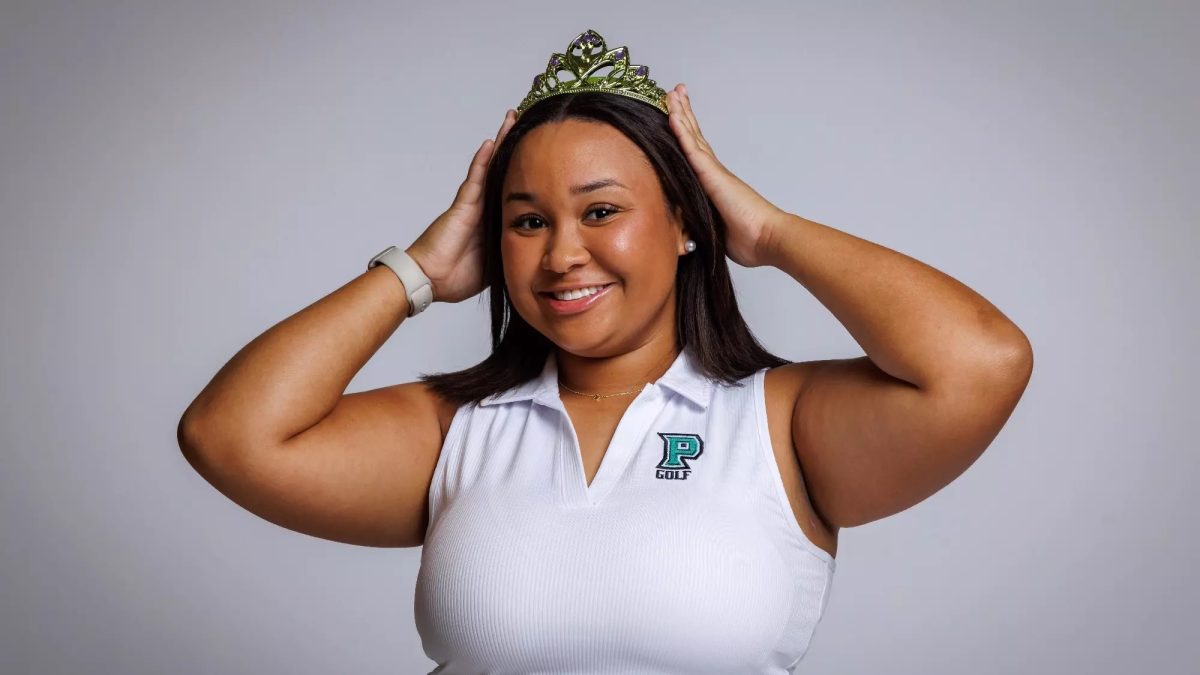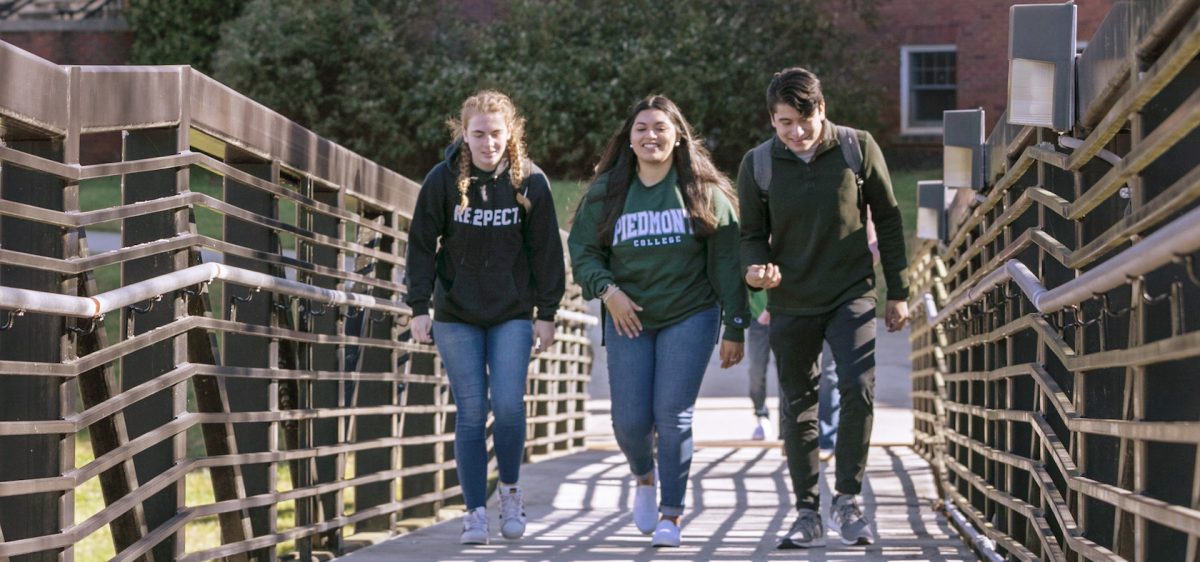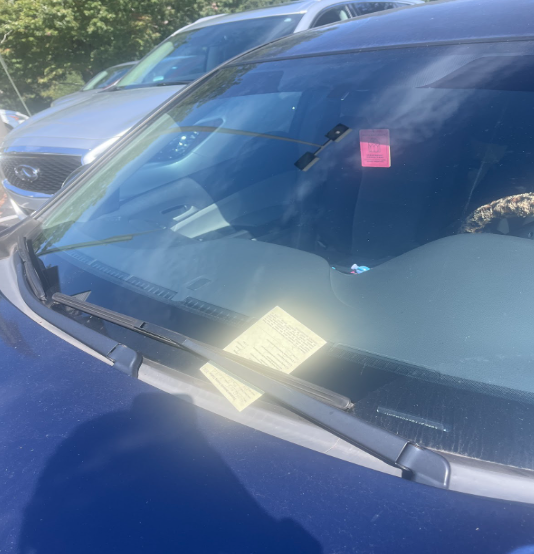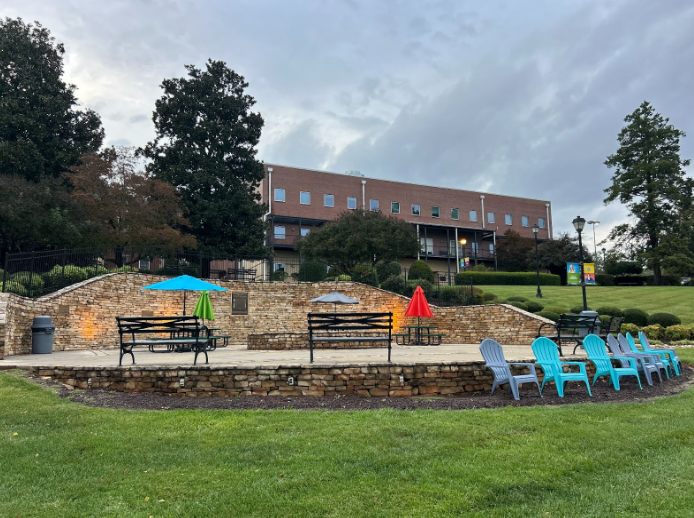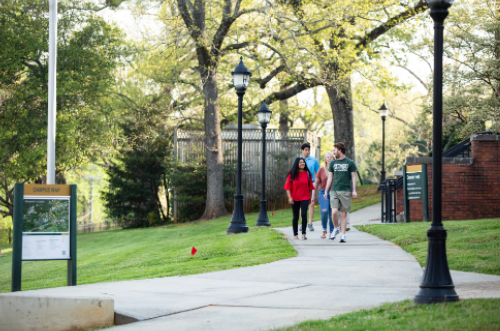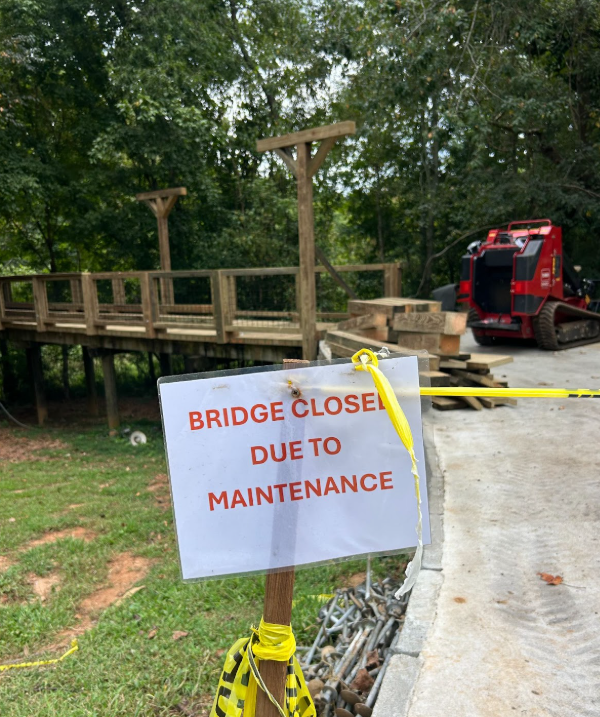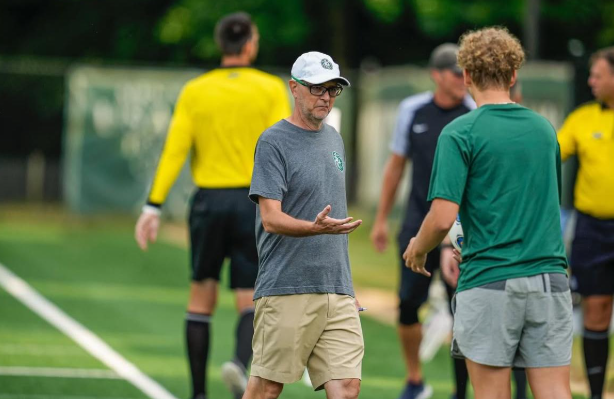
Impact Award from the Georgia College Press Association.
Best News – Objective Reporting (2nd place) from the Georgia College Press Association.
Even in the mountains of Northeast Georgia, most summer days entail sweltering heat, pounding sunlight and dense, syrupy air. For students who stay in town over the break, a simple walk across campus becomes a losing battle against the broiling sun. Many seek refuge from the heat at the Ruby Fulbright Aquatic Center, where Piedmont College students can access the community swimming pool for free. For some students, however, Ruby Fulbright is no longer a safe or welcoming place.
Over the summer, on separate occasions, two transgender students experienced discrimination from the staff of the Ruby Fulbright Aquatic Center. It first occurred in mid-June, when Kadence (who uses only her first name), a junior theater arts administration major, was pulled away from her friends in the locker room.
“One of the lifeguards pulled me around the corner and told me that I was not allowed to be in there,” Kadence said. “She told me that I had to use a private dressing room. I kept asking her why, over and over again, but she would not give me an answer. I told her that if she was not going to give me an answer, I was not going to leave.”
Eventually, the lifeguard left to get her manager, and Kadence returned to go swimming with her friends. While she was still in the pool, Kadence was approached by Kurt Cooper, the director of the Habersham County Parks and Recreation Department.
“He came up and kneeled by the pool to talk to me,” Kadence said. “During the whole conversation, he refused to use my name. He kept aggressively deadnaming and misgendering me, no matter how many times I corrected him. He also used terminology like, ‘a transgendered,’ so I knew he was completely ignorant to everything in the world going on around him.”
Shaken up by her encounter with Cooper, whom she describes as “so catastrophically ignorant that he is hard to look at,” Kadence and her friends left the swimming pool. She still has not returned.
“I have not been back since,” she said. “But I know that afterwards, it happened again to a friend of mine who is also trans.”
Kadence’s friend is Luna Cox, a senior theater arts major who experienced a similar situation, just a few weeks later, while checking into the swimming pool.
“I had been swimming there before, and used the women’s locker room, to no complaint or problem at all,” Cox said. “This time, when the woman saw my ID, which legally has to have my legal name, she told me that I had to use a private bathroom or the men’s locker room. When I asked her why, she said it was ‘policy.’ I like to believe that I am brave, but I was already having a bad day. I asked her where the private bathroom was, and I used it. It was alienating, humiliating, saddening and disheartening.”
Cox’s experience at Ruby Fulbright left her hurt, but she chose not to fight it. She felt that the aquatic center had proven itself to be toxic to her, so she chose to remove it from her life.
“I decided not to fight it or complain,” she said. “I simply decided I was not going to go there, which pretty much means I do not go swimming anymore. Swimming there was a nice experience, but it was not worth the way that it made me feel. I did not report my expirience, and so the college did not have anything to investigate, and that was the end of that for me.”
For Kadence, however, the Ruby Fulbright saga was far from over. After her incident, she was hopeful that Piedmont College would work with her to ensure that such discrimination would never happen again.
After all, Ruby Fulbright’s “policy” on transgender patrons is in direct violation of the Habersham County Board of Commission’s Facility Usage Agreement with Piedmont College. This contract entails that, in exchange for a semi-annual fee of $1,458, the Ruby Fulbright Aquatic Center will provide access to its gymnasium, swimming pool and locker rooms to all Piedmont College students, faculty and staff.
Clearly stated in the agreement’s nondiscrimination section, “Habersham shall not discriminate against any program participant, employee and/or sub-contractor because of race, creed, color, national origin, gender, affectional or sexual orientation, age, marital status, religion or disability by refusing to furnish such person any service or privilege offered to or enjoyed by area residents.”
The Facility Use Agreement was prepared by Kurt Cooper, the same man who confronted Kadence at the swimming pool. The Roar reached out to Cooper to hear his side of the story, but he declined to comment on the incident.
“I appreciate you reaching out and giving me the opportunity to speak with you prior to printing the article,” he said. “However, I do not have anything to contribute.”
Ruby Fulbright had refused Kadence the privilege of using the locker room because of her gender. She was sure that they had broken their side of the contract, and she was confident that Piedmont would step up to her defense. Her hopes were quickly squandered, however, after a problematic encounter with a member of the Piedmont staff.
According to Kadence, her interaction with this staff member was disheartening and transphobic. “[The staff member] compared accommodating for trans people to accommodating for dogs. That sent a message to me that Piedmont was not going to be on my side.”
Dr. James Mellichamp, the president of Piedmont College, argues that the school is absolutely on Kadence’s side, but that the situation is largely out of Piedmont’s hands. “We will do whatever we can,” he said. “Having said that, beyond the Piedmont campus, we really do not have a lot of influence or control.”
Mellichamp said that it is always Piedmont College’s goal to educate the community around it, especially when it comes to social issues.
“The time we have here is too short to get hung up with this kind of crap, but it happens,” he said. “I know it happens, and I am sorry about this particular incident. I will really look into it, and I will see if there is things that we can do to prevent it from happening in the future.”
On Aug. 22, a full month after Kadence and Luna experienced discrimination at the aquatic center, Piedmont College renewed its contract with Ruby Fulbright, including its unchanged nondiscrimination policy.
“I would hate for [Piedmont to pull its contract] because that impacts other students as well,” Mellichamp said. “I am hopeful that we will be able to find some sort of positive outcome so that everybody will be comfortable.”
For several months, nothing changed in the Ruby Fulbright case. Recently, however, Piedmont reached out to Kadence and has been making gradual progress in coming to a solution. Slowly, Kadence is regaining hope that the school will stand up for her rights.
“It has been slow, but I have had meetings with Dean Pettit about it and everything has been moving forward,” she said. “I also met with Natalie Crawford, who works on the county level, and she has been working to make sure that it does not happen again. She even gave me her contact information in case it does happen again.”
Piedmont has also made changes to its staff since the summer, including hiring a new intern who counsels students struggling with gender-related concerns. The school also now offers a support group for gender diverse students who are interested in developing a peer support network.
Kadence is hopeful that her situation will ultimately lead to progress in the community. By the time the blistering summer sun returns next year, Kadence is hopeful that the Ruby Fulbright Aquatic Center will be a welcoming refuge to all students.
“I am frustrated, yet hopeful,” she said. “I’m frustrated that so many remain ignorant to the situations and the world around them as it diversifies. I am hopeful, though, because I am making progress, and hopefully I am going to be a catalyst for education. I hope to make this community safer for everyone in it. I want to make it a community for all genders, sexualities, and even races and ethnicities.”



